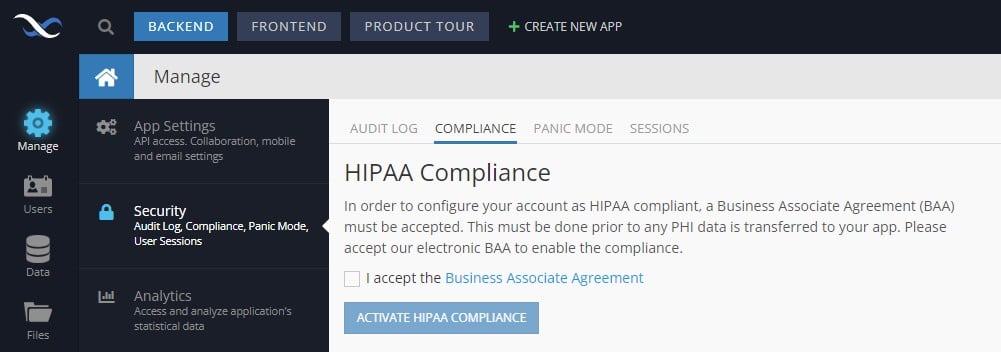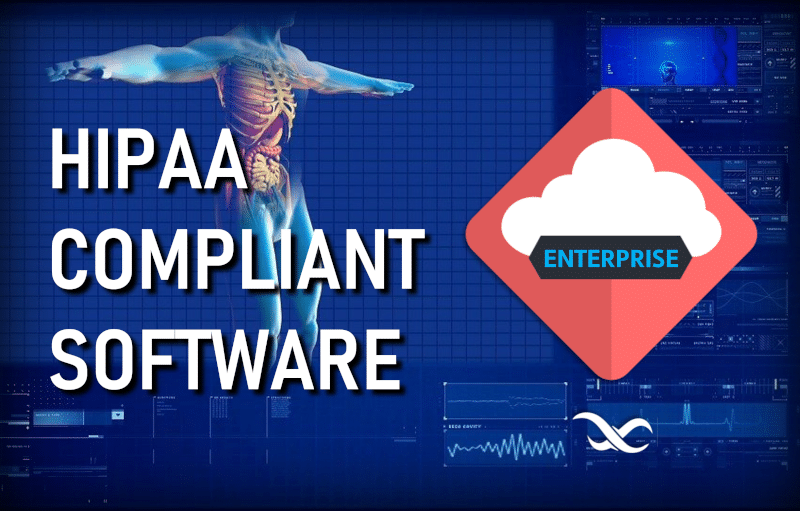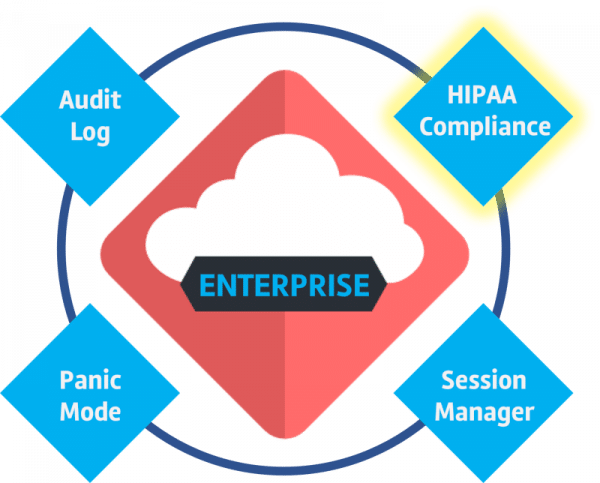What is HIPAA?
The Health Insurance Portability and Accountability Act (HIPAA) is a U.S. law that was enacted in 1996. It protects the confidentiality of patient health information and sets standards for the security of electronic health information.
Under HIPAA, covered entities – which include healthcare providers, health plans, and clearinghouses – must take steps to ensure the confidentiality, integrity, and availability of electronic protected health information (ePHI). They must also protect against unauthorized access, use, or disclosure of ePHI.
Why is HIPAA compliance necessary for healthcare software?
If your software deals with any kind of patient health information or electronic health records, it needs to be HIPAA compliant. This is because HIPAA requires all covered entities to take steps to protect patient health information from unauthorized access, use, or disclosure.
If your software is not compliant with HIPAA, you could be subject to fines and penalties. In addition, patients could lose trust in your software and your company if they know their health information is not being properly protected.
Healthcare organizations and medical software in particular are held to high data security standards in order to protect individuals’ medical privacy. Data breaches involving medical records can be extremely costly, both in terms of cleanup as well as impact on the reputation of the healthcare industry in general.
When developing healthcare software, data privacy and security are critical.
What is a BAA?
If you’re going to be handling any kind of ePHI, you’ll need to sign a Business Associate Agreement (BAA) with Backendless. This agreement outlines our obligations to protect the confidentiality and security of ePHI.
The BAA is an important part of our HIPAA compliance program and ensures that we are taking all the necessary steps to protect your data.
You can review the Backendless HIPAA BAA here.
The Backendless team are your business associates in that we manage the servers and maintain the security protocols necessary to protect your healthcare data.
How does the Backendless Enterprise Security function pack help with HIPAA compliance?
The Backendless Enterprise Security function pack can be added to any paid Backendless plan and offers a number of features that can help you make sure your software is compliant with HIPAA. These features include:
- A private, dedicated server instance – This ensures that your software will not be sharing resources with other applications. This is important because it helps to prevent unauthorized access to your software and the patient health information it contains.
- HIPAA compliance certification – Backendless is certified by the Healthcare Information Trust Alliance (HITRUST) as a HIPAA-compliant service provider. This certification means that we have met strict security standards for protecting patient health information.
 When you sign up for the Cloud Enterprise Plan, you can sign a BAA with Backendless naming us business associates and signaling that your application is HIPAA compliant.
When you sign up for the Cloud Enterprise Plan, you can sign a BAA with Backendless naming us business associates and signaling that your application is HIPAA compliant.
- Priority support from our team of experts – Receive priority support from our team of experts to help you with any questions or concerns you may have about HIPAA compliance on the platform.
For developers looking to build HIPAA compliant software quickly, Backendless is an ideal choice. With our strong security and Codeless development system, your HIPAA compliant software can be built fast while remaining highly secure.
HIPAA Compliance Checklist for Software Development
When you’re developing software that will be used by covered entities, it’s important to make sure that your software is compliant with HIPAA. To help you get started, we’ve put together a checklist of things to keep in mind during development to make your software HIPAA compliant:
- Make sure you understand the requirements of the HIPAA Privacy Rule and the HIPAA Security Rule (described in more detail below).
- Work with a HIPAA-compliant service provider, like Backendless, that can help you meet the requirements of the HIPAA rules.
- Make sure your software is properly storing and protecting all ePHI.
- Sign a Business Associate Agreement (BAA) with your service provider.
- Get HIPAA compliance certification for your software.
By following these steps, you can be sure that your software is compliant with HIPAA and that your patients’ health information is properly protected.
What is a covered entity?
A covered entity is any organization that is required to comply with the HIPAA Privacy Rule. This includes healthcare providers, health plans, and clearinghouses.
What is ePHI?
ePHI stands for electronic protected health information. This is any kind of patient health information that is stored electronically. ePHI can include things like medical records, test results, and insurance information.
What is the HIPAA Privacy Rule?
The HIPAA Privacy Rule is a set of federal regulations that govern how patient health information can be used and disclosed. The Privacy Rule applies to all covered entities, including healthcare providers, health plans, and clearinghouses.
The Privacy Rule establishes national standards for the protection of ePHI. It requires covered entities to take steps to ensure that ePHI is kept confidential and secure. In addition, the Privacy Rule gives patients the right to access their own health information and to control how that information is used and disclosed.
What is the HIPAA Security Rule?
The HIPAA Security Rule is a set of federal regulations that govern how ePHI must be kept secure. The Security Rule applies to all covered entities, including healthcare providers, health plans, and clearinghouses.
The Security Rule requires covered entities to take steps to ensure that ePHI is kept confidential and secure. In addition, the Security Rule requires covered entities to put in place physical, technical, and administrative safeguards to protect ePHI.
Software features necessary to comply with HIPAA
When building HIPAA compliant software, the following features should be included. All of these are available from Backendless, either as standard security features or as part of the Cloud Enterprise Plan.
- User authorization
- Access control
- Authorization monitoring (see Session Manager)
- Data backup
- Remediation plan
- Emergency mode (see Panic Mode)
- Automatic log off
- Idle time out
- Data encryption
How to get started with the Backendless Enterprise Security function pack
Getting started with the Enterprise Security function pack is easy. In the BACKEND section of Backendless Console, navigate to Marketplace -> MBAAS Function Packs > All Function Packs and you may select the Enterprise Security function pack.

Need more information?
In addition to HIPAA compliance, the Enterprise Security function pack includes other enterprise-grade security features:
If you’re interested in getting started with the Backendless Enterprise Security function pack but still have questions, contact us today.
We’ll be happy to answer any questions you have and help you get started making your Backendless application into HIPAA-compliant software.



